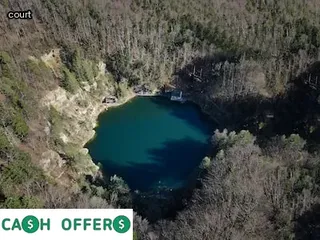In Vermont, Probate is the legal process of administering an estate after someone dies.
This includes collecting and appraising the deceased person's assets and distributing them according to the terms of their Will or, if there's no Will, in accordance with Vermont law.
In addition to making sure that the deceased person's debts are paid, this process can also involve filing the will with the court, paying taxes on the estate, and nominating an administrator to act on behalf of any minor children involved.
It is important to understand Probate laws in Vermont so that you can ensure that it is conducted properly when you become an Administrator of Estates.

In Vermont, probate is required for any estate that includes real property or personal property with a value of more than $10,000. The estate's executor must file a petition to the court seeking an order allowing them to administer the estate.
If the court approves, the executor must then identify and collect all of the decedent's assets, pay off debts and taxes, and distribute any remaining assets according to the instructions in the will or as directed by law. In addition to real property and substantial sums of money, other items subject to probate may include stocks, bonds, life insurance policies, retirement accounts, and vehicles such as cars and boats.
In Vermont, it is important for an administrator of estates to understand which assets are subject to probate so they can properly account for everything in their petition and proceed accordingly in administering the estate.
In Vermont, the executor of an estate has a variety of responsibilities they must fulfill in order to properly administer the deceased's estate. First, the executor is responsible for gathering all assets of the estate and securing them.
This includes locating bank accounts, real estate, and any other items or documents that may be part of the estate. Second, the executor must pay outstanding debts and taxes from the estate’s assets - this includes filing any necessary tax forms.
Third, it is necessary to distribute the remaining assets according to instructions provided in a will (if one was created) or by state law if no will was written. Finally, the executor should keep detailed records throughout their administration process and make sure all paperwork is filed correctly with state probate court.
It is important for an executor to understand these obligations before beginning their duties in Vermont so they can accurately perform their role.

In Vermont, executor compensation is regulated by statute and the court. According to the state's probate laws, executors are entitled to reasonable compensation for their services, which includes expenses and commissions.
The amount of payment depends on the size of the estate, the nature of the work done by the executor, and any other relevant factors that may impact their payment. Executors must provide an itemized list of all expenses incurred to receive reimbursement for costs associated with carrying out their duties.
Additionally, commissions are subject to a set fee structure based on a percentage of the value of the estate assets distributed as per instructions in the will or intestacy laws. Furthermore, it is important for executors to be aware that if they breach their fiduciary duty during estate administration then they can be held personally liable for resulting loss suffered by beneficiaries.
In Vermont, probate is a long and complicated process that can be avoided if proper steps are taken. It is important for those wanting to become administrators of estates in Vermont to understand how to avoid probate.
One of the most common ways to avoid probate is through a living trust. A living trust allows the owner of an estate to transfer assets into the trust while they are still alive, thus avoiding the need for a probate court process after death.
In addition, you can also avoid probate by transferring items such as bank accounts, stocks, bonds and other investments through payable-on-death forms or joint ownership with right of survivorship. If all necessary paperwork has been filled out during life, an executor may not even need to go to court in order to manage the estate after death.
Ultimately, understanding how to reduce or eliminate probate in Vermont is key for anyone wanting to become an administrator of an estate in the state.

To become an administrator of estates in Vermont, the most important requisite is that you have all the necessary paperwork. This includes a valid will, if one exists, as well as death certificates and a surety bond from a company approved by the court.
The petitioner must also provide proof of residency for the state of Vermont, such as a driver's license or other form of identification. Additionally, you may need to file an inheritance tax return with the department of taxes to receive authorization to act as administrator of estates.
In some cases, you may also be required to submit an inventory or appraisal report on assets within the estate. Finally, you should make sure your paperwork is filed correctly with probate court before being officially appointed as administrator.
In Vermont, upon the death of an individual, there are certain filing requirements that must be met in order to administer their estate. Generally speaking, the administrator should file a petition for probate with the court clerk in the county where the deceased resided before passing.
The petition will require information such as the name and address of the deceased person, their date of death and other pertinent details. Additionally, if applicable, a copy of any will or trust document must also be included.
If no will exists, then an affidavit regarding heirship may need to be provided. The court clerk can provide more detailed information about what is needed to begin the process of administering an estate in Vermont.
Furthermore, certain fees are associated with filing this paperwork and should be taken into consideration when calculating costs related to becoming an administrator of estates in Vermont.

In Vermont, settling an estate can take anywhere from 4 to 12 months depending on the size and complexity of the estate. It is important to contact a probate lawyer as soon as possible to ensure that all steps are taken in a timely manner.
The executor will need to collect all assets and debts, assess their value, pay off creditors, file all necessary paperwork with the court system, and distribute assets according to the wishes of the deceased. Additionally, any taxes must be filed and paid before closing out the estate.
After obtaining court approval for the distribution of assets, it is possible for an executor or administrator to finalize an estate in Vermont within four months or less if there are no complications. However, if there are complexities such as disputes between heirs or challenging asset valuations, it could take up to twelve months or longer for an estate to be settled in full.
The probate court and code information for estates in Vermont can be complicated to understand. It is important to have a clear understanding of the laws and regulations in order to properly administer an estate.
The process begins with the filing of a petition with the probate court in the county in which the deceased resided. This petition will include information about all assets, liabilities, and beneficiaries included in the estate.
The probate court will then appoint an administrator to oversee the estate's affairs and distribute assets according to state law. This person must be knowledgeable about Vermont's probate laws and statutes, as well as fiduciary duties related to being an administrator of an estate.
Furthermore, all distributions from the estate must be approved by the probate court before they can be finalized, so it is important that all paperwork is filed correctly and promptly. Understanding these requirements is imperative for anyone looking to become an administrator of estates in Vermont.

When taking ownership of an estate as an Administrator in Vermont, there are a few steps to follow to ensure that everything is done properly and legally. It is important to become familiar with the laws and regulations governing the administration of estates in Vermont.
The first step is to obtain Letters of Administration from the Vermont probate court. This document will grant you the right to manage and distribute the assets of the estate in accordance with Vermont law and will also identify you as the appointed administrator.
Once you have obtained Letters of Administration, you must then notify all interested parties, including creditors, of your appointment as administrator and provide them with a copy of your letters. You must also take inventory of all assets belonging to the estate and file a Petition for Distribution with the probate court.
After filing this petition, you must wait for it to be approved before distributing any assets from the estate. Finally, after all debts have been paid and all remaining assets distributed according to law, you may close out the estate and transfer ownership back over to its appropriate beneficiaries or heirs.
When it comes to probate in Vermont, having a will is essential for properly distributing the estate of a deceased individual. The Administrator of Estates is the person responsible for carrying out the instructions and requirements set forth in the will.
This role is necessary for ensuring that all debts are paid, taxes are filed, and assets are distributed in accordance with the wishes of the decedent. A will also serves to protect any minor children by appointing an appropriate guardian and conservator.
It is important to understand that without a valid will, Vermont probate law dictates how an estate should be divided up among surviving family members. Knowing one's rights and responsibilities as an Administrator of Estates in Vermont can help ensure that all aspects of probate are handled efficiently and correctly.

The legal process of settling an estate in Vermont can be complex and overwhelming if you don’t have the right advice. Before becoming an administrator of estates in Vermont, it is important to consider the various legalities related to winding up a deceased person’s affairs.
First, you must adhere to all probate laws and regulations in Vermont for distributing assets to family members and other stakeholders. It is also important to know how to navigate any tax or debt liabilities that may arise from settling an estate.
Additionally, you should ensure that all property is correctly transferred according to state law, as well as understand how long the entire probate process usually takes in Vermont. Finally, it is essential to gain an understanding of what rights and responsibilities administrators have in regards to administering estates in the state.
By seeking out legal advice when settling an estate in Vermont, you can have confidence that the process will run smoothly and efficiently.
In Vermont, there are various ways to transfer property after the death of a loved one without going through probate. One way is to use an administrator of estates, who is responsible for ensuring that all assets and liabilities are managed in accordance with the wishes of the deceased.
By following a few simple steps, it is possible to become an administrator of estates in Vermont and ensure that your loved one's property goes to the intended recipient. The first step is to obtain a Certificate of Qualification from the Probate Division of the Superior Court.
This document must be completed by a qualified individual such as a lawyer or accountant and will provide evidence that you are competent to serve as an estate administrator. Next, you must file an Affidavit of Appointment with the court which details your appointment as estate administrator.
Finally, you must also submit documentation such as tax returns, bank statements, and other financial records related to the estate along with any other information requested by the court before they will approve your appointment. Following these steps will allow you to begin transferring property after death without going through probate in Vermont.

When probating an estate in Vermont, the Personal Representative (PR) is responsible for a variety of duties. The PR must inventory and appraise all assets, manage the estate's finances including paying debts, filing tax forms, and distributing assets to beneficiaries.
Furthermore, they have the duty to ensure that creditors are properly notified and paid within the timeline prescribed by state law. The PR also needs to keep careful records of all transactions and provide clear accounting of their fiduciary responsibilities as part of the final distribution process.
It's important for the PR to communicate regularly with beneficiaries in order to keep them informed about progress throughout the entire probate process. Lastly, the PR should be aware that they are subject to ongoing court supervision which could require them to report periodically on their activities and provide additional documentation related to specific aspects of estate administration.
In order to become an administrator of estates in Vermont, it's important to understand the inventory and appraisal requirements during the probate process. In Vermont, all estate assets must be inventoried and appraised accurately so that the proper tax is paid on the estate.
The executor will need to provide a detailed list of all assets with their respective values to the probate court for approval. An independent appraiser should be hired to determine the fair market value of each asset, as well as any real property such as homes or land.
If there are any disputes over who is entitled to what item, a full appraisal may be necessary. Additionally, if any debts are owed by the estate, those must also be accounted for and taken into consideration when assessing taxes due.

In Vermont, after going through the probate process, assets from an estate must be distributed to the heirs and beneficiaries. The administrator of the estate is responsible for responding to creditors' claims, filing all necessary paperwork with the court, and ensuring that all debts are paid out of the estate before any assets are distributed.
Depending on the type of assets in an estate, tax forms may need to be filed in order for the distribution to occur. Any cash or other types of liquid assets can generally be transferred directly to beneficiaries without much difficulty.
Non-cash assets such as real property will require a deed transfer or other legal documents in order to change ownership. If there are disputes between parties claiming a share of the estate, a judge may have to get involved in order to resolve them before any distributions can take place.
Ultimately, it is up to the administrator of an estate to ensure that all debts are paid and distributions are made according to Vermont law.
Closing an estate in Vermont after going through the probate process involves understanding taxes owed on an inheritance, as well as the potential for contesting a will. All estates must pay taxes to the Internal Revenue Service (IRS), including federal and state income taxes, gift taxes, and estate taxes.
In Vermont, this is done by filing a fiduciary income tax return within nine months of the decedent's date of death. Furthermore, any inheritance or distributions from the estate are subject to taxation, depending on the value of the inheritance.
Additionally, if beneficiaries choose to contest a will during probate in Vermont, they must file their objections with the court within five months of receiving notification of the appointment of an administrator or executor. The court then evaluates whether or not there is sufficient evidence to prove that there was fraud or undue influence surrounding the will’s contents.
When someone dies, their estate must be managed according to their will. If the deceased person did not have a will, then the state of Vermont has rules that determine how it should be handled.
An executor or administrator is responsible for managing the estate. But what’s the difference between an executor and administrator? An executor is appointed by the deceased in their will to manage the estate when they die.
The executor is responsible for carrying out the wishes of the deceased, such as distributing assets to beneficiaries and paying any debts or taxes that are owed. An administrator is appointed by a court if there is no will or if the named executor cannot fulfill their duties.
The administrator's job is to administer and distribute assets according to Vermont state law, instead of following any instructions left in a will. Both administrators and executors have similar responsibilities when managing an estate.
They must locate, identify, value and protect all assets; pay off all debts; file necessary tax returns; distribute assets to beneficiaries; and ensure all legal requirements are met. However, only an executor can carry out specific instructions written in a will while an administrator must follow local laws for distribution of assets.

Settling an estate in Vermont can seem daunting, but with the right guidance, it can be accomplished relatively quickly. All applicants seeking to become an Administrator of Estates in Vermont must meet certain requirements and follow a set of procedures.
This step-by-step guide explains the process for settling an estate in VT including how to apply for Letters of Administration and how to distribute assets according to state law. Requirements vary based on whether the decedent had a will or not, so understanding the differences between testate and intestate estates is key.
Applicants should also familiarize themselves with the probate court system, filing deadlines and other necessary paperwork before beginning the process. Working with an experienced attorney or estate planner can help ensure that all legal requirements are fulfilled and that assets are distributed efficiently.
Understanding the process of settling an estate in Vermont will make it easier to complete efficiently and effectively.
In Vermont, an executor of a will is paid based on the estate's size and complexity. Generally, the executor of an estate receives a fee that is either a percent of the total gross estate or a set amount.
The maximum percentage that can be paid to an executor in Vermont is 5% of the gross value of the estate for probate and 4% for non-probate assets. Additionally, if there are more than one executor appointed to an estate, the fees must be split amongst them.
If any extra services need to be performed by the executor, such as preparing tax returns or dealing with other special requirements, then additional fees may be charged. Ultimately, it is up to both parties—the executor and beneficiaries—to negotiate and agree upon a fair fee for their services.
In Vermont, avoiding probate court is possible with proper estate planning. To avoid probate, it is important to create and execute a valid will prior to death.
Additionally, titling assets in joint tenancy or transferring them into a trust also help to keep assets outside of probate. Having an understanding of the laws in Vermont regarding estates and probate can help ensure that your estate is handled properly after you pass away.
Consulting with a professional estate administrator or attorney is recommended for more complex matters or for those who are unsure of the laws in their state. With the right steps, individuals can protect their families from having to go through the expensive and lengthy process of probate court in Vermont.
A: To become an Administrator of an estate in Vermont, you must either be appointed by the court or have a signed Power of Attorney document from the deceased that appoints you as their Attorney-in-Fact. An attorney should be consulted to assist with the process and ensure everything is done correctly.
A: In Vermont, devisees, beneficiaries, legacies and legatees are all able to petition the court to become administrators of an estate if they meet certain requirements. This includes filing a Petition for Letters of Administration and providing proof of the right to administer the estate.
A: In order to become the administrator of an estate in Vermont, you must be named as the Executor or appointed by the court. If you are named in a Will (or Testamentary), you must submit Letters Testamentary to the court. If there is no Will, then any interested party may petition the court for appointment as Administrator and provide notice to all interested parties. If there are Codicils, they must also be submitted to the court.
A: If you are named as the administrator in a Will of an estate located in Vermont, you must submit a Petition for Letters of Administration to the Probate Division of the Superior Court. You will also need to provide supporting documents such as a certified copy of the Will and an affidavit verifying that all known debts have been paid.
A: If the deceased died without leaving a will, then under Vermont law, their next of kin may apply to be appointed as the estate's administrator. The court will consider all relevant factors when making this determination including any potential conflicts of interest and the ability of the applicant to identify and administer the chattels of the estate.
A: When becoming the administrator of an estate domiciled in Vermont, you must familiarize yourself with the various laws and jurisdictions which govern the administration of estates in the state. You should understand and be aware of any potential personal liability that may arise from your role as administrator. Additionally, you should ensure that you are properly registered and have fulfilled all necessary documentation requirements according to state law.
A: To become an administrator of an estate in Vermont, one must comply with the regulations outlined in the Vermont Statutes Annotated (V.S.A.). This includes filing a probate petition with the court, having at least two witnesses sign any documents related to the estate and ensuring that all debts and taxes are paid before distributing assets via U.S. Payable on Death accounts or other vehicles. Depending on the size and complexity of the estate, it may be beneficial to seek legal aid from a qualified attorney or financial advisor.